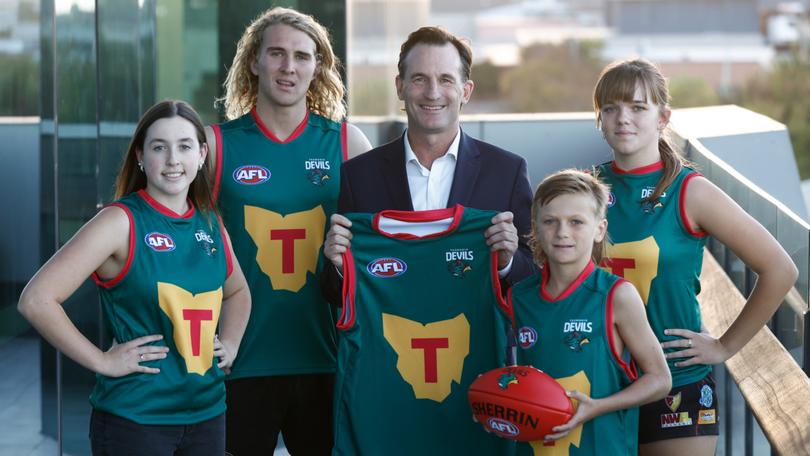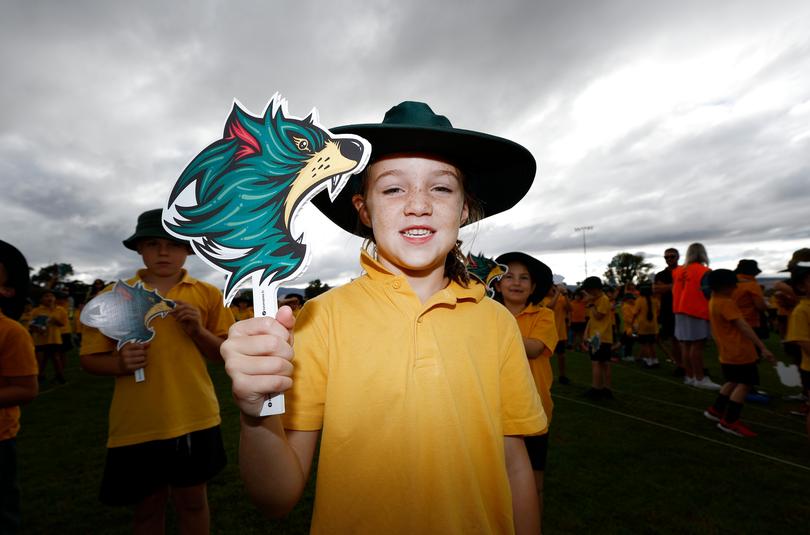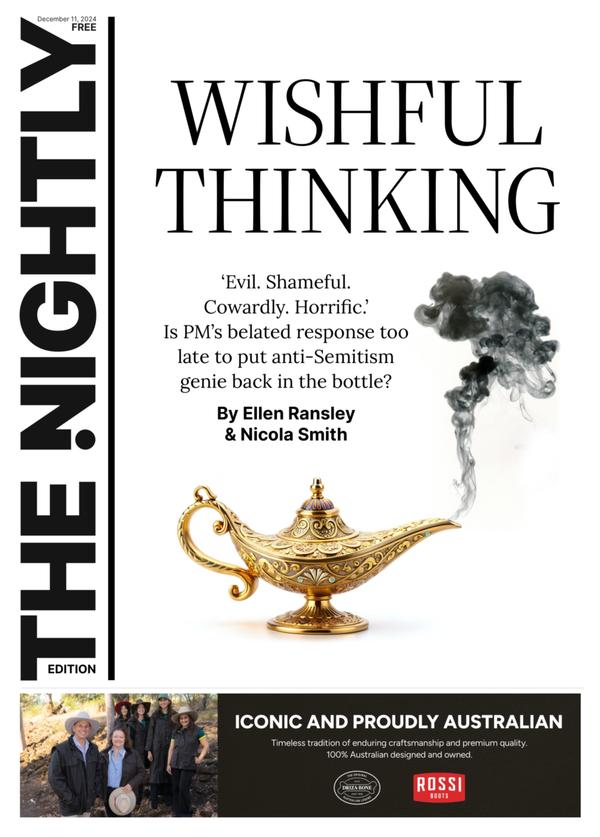Georgie Parker: Why the 19th AFL team should have been in the Northern Territory rather than Tasmania

The Tasmanian Devils are going to be the 19th AFL team and I am so thrilled for the state.
I don’t think I or other “mainlanders” can actually appreciate the enormity of having a Tasmanian team in the AFL. I did grow up in a small country town in South Australia though, so I can appreciate feeling as though you were a secondary thought when it came to sport.
The Devils, much like the Jackjumpers in the NBL, are going to change the state and that feeling of being left out and forgotten is going to be one of the past.
Sign up to The Nightly's newsletters.
Get the first look at the digital newspaper, curated daily stories and breaking headlines delivered to your inbox.
By continuing you agree to our Terms and Privacy Policy.In saying all of that — and I’ve been saying this for years — I would have preferred a team in the Northern Territory before a team in Tasmania.
Now I don’t need any finance gurus to come at me and tell me financially that’s not possible, and maybe this is just a pipe dream, fantasy world where I can see it happening. But, my goodness, I hope in my lifetime there is a team up north.
The social impacts for having a team in the heartland of Indigenous culture would be enormous. From grassroots football, to the elite of the AFL, I see nothing but huge benefits of having a team up there.
We have had some of the best to ever do it come from the NT, many of which have given up the game either prematurely, or with a feeling of sorrow for the game they love due to not feeling at peace while playing.
You don’t have to dig deep to see the social and physical benefits that Australian rules football has on our First Nations people, particularly in the NT.
Higher levels of school attendance, particularly in boys, leading to higher levels of finishing Year 12. Greater levels of employment, better mental and physical health and a higher overall life satisfaction are all shown when playing Australian rules football in the NT.
To have a team to aspire to, a team to support and a team to feel connected to would only lift this up. At the moment the dream is too far away, it is only in front of Territorians three times a year.
That dream needs to be front and centre, and, much like the AFLW, if you can’t see it, you can’t be it.
Not only would the benefits be for those First Nations peoples or Torres Straight Islanders, but there is a lot of learning to be done on the other side of the fence as white Australians. How often are we shaking our heads with embarrassment with racism in Australia?
An example, if you haven’t seen, Eddie Betts — one of the best to ever play the game — and his family were at home when vile abuse was cowardly hurled their way.
Betts, being the continuously kind man we do not deserve approached this with the opportunity of education to the abuser, as opposed to anger.

“We are not even safe in our own homes… I’m open to having a chat about how much this hurts out kids” Betts said on his social media.
He shows grace to which these people do not deserve, but it is grace that Betts so often gives.
This continual racism that our First Nations people endure, on and off the field, shows we have a long way to go as a country, and sport is something that holds the power to help bridge this gap.
It is imperative that the AFL respect that, and do what it can to have indigenous players in remote communities play the game of Australian rules, and keep the elite players in the league and continue change in society that is so desperately needed.
Having more Indigenous players feeling comfortable in their place in this wonderful and uniting game is going to help us get to where we all want to be, which is a space of reconciliation and peace.
The significant contribution that Territorians have given to the sport of AFL is huge — is there a possibility that the AFL could ever give that contribution back?
Maybe not now, but one day I hope, because imagine seeing a happy Cyril Rioli playing in Darwin instead of an early retirement. In the words of Bruce McAvaney, wouldn’t that be “special”.
